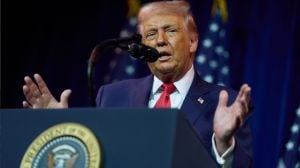quot;Is mayor-in-council needed?quot;
MUMBAI, March 30: Participants in the debate on the mayor-in-council system at the Brihanmumbai Municipal Corporation's on Tuesday were unan...

MUMBAI, March 30: Participants in the debate on the mayor-in-council system at the Brihanmumbai Municipal Corporation8217;s on Tuesday were unanimous that the state government should have invited a public debate on the system before deciding to implement it.
The debate, organised by the BMC Reporters8217; Sangh, was attended by former municipal commissioner Sharad Kale, former sheriff Nana Chudasama, former MHADA president Chandrashekhar Prabhu, Santosh Shinde of Nirbhay Bano Andolan and BMC corporators. Mayor Vishakha Raut, however, was not present. Though the participants didn8217;t openly support or condemn the system, all of them felt the government should still allow the people to decide if the new system was desirable.
Kicking off the debate, Sharad Kale said though the government was arguing that the mayor ought to be given more powers, quot;in reality, the mayor has many unwritten powers, and bureaucrats, including the municipal commissioner, respect the mayor8217;s decisions.quot; He said more powers could be given tothe mayor in the present system as well, adding it was untrue the commissioner had all the powers to run the corporation.
quot;Though the system seems to be doing very well in Calcutta, we don8217;t yet known if Calcutta gives better civic facilities to its residents,quot; Kale said. He cautioned, quot;We8217;ll be responsible for the ill-effects of the new system. We8217;ll also have to check whether this will have any effect on the status of Mumbai, because Mumbai didn8217;t become the capital of the state as easily as Calcutta.quot; Kale questioned if the government could afford to separate Mumbai from the rest of Maharashtra, because 61 per cent of the state revenue is generated by Mumbai.
Samajwadi Party corporator Ramesh Joshi feared that if the city is separated, the rest of Maharashtra will become backward. Joshi said there will be confusion in delegating powers, because all council members will have executive powers. He strongly opposed Amendment 29 of the system, which states that the state government could dissolve thecorporation, saying the grounds of dissolution are flimsy. quot;The government will now run BMC from Sachivalya. It has centralised BMC8217;s powers in a remote control, when the Centre8217;s talking of decentralisation,quot; he alleged.
Chudasama preferred to be neutral, but questioned if the new system would be transparent. He felt that the BMC has run well for the last 110 years and said in the new system, the municipal commissioner will be reduced to a head clerk.
Prabhu pointed out that a similar kind of system had been experimented in Germany when Adolf Hitler took over the reins. It was a disaster, he said, clarifying he wasn8217;t drawing any comparison. Admitting that there were wrongs in the present system, he wondered if the MIC was the only solution. quot;This issue has to be debated on the streets,quot; he added.
Shinde took objection to a section of the amendment, which states that some powers will be vested with the state government, but which doesn8217;t clearly enumerate the powers.
The Congress party8217;s R R Singhsaid the new system would lead BMC into darkness, and asked why the government didn8217;t choose to implement it in other state corporations also if it was seen to be doing well in Calcutta. quot;We can8217;t compare Calcutta and Mumbai. They8217;re different in every respect,quot; he said.
- 01
- 02
- 03
- 04
- 05































